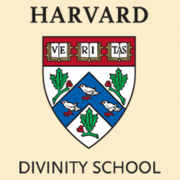
HDS student Ellen Aitken delivered Morning Prayers in Appleton Chapel on December 15, 2003.
Some of you may know the words of the Advent Prose, the use of words from the prophet Isaiah to express deep longing for God and God's ways: "Drop down, ye heavens, from above, and let the skies rain down righteousness." Set to a plaintive chant tone that seems to pull forth yearning from the depth of the heart, these words form a refrain to prayers of lamentation and the assurance of God's comfort, taken from the prophets and the Psalms. And this longing, which can be as sharp as the cold wind in winter, is one of the touchstones of this season of Advent. Indeed throughout Christian tradition Advent is marked as a time for the gathering of desires, the articulation of longing for the reign of God—a reign of mercy, justice, and liberation, as the prophets tell us. "Drop down, ye heavens, from above, and let the skies rain down righteousness."
Matthew's story of the blind men who cry out to Jesus has some peculiar features. They cry out, "Have mercy on us, Son of David"; they do not ask to have their sight restored. And what is more, Jesus does not ask them what they want, what he might do for them. In these respects this story is unlike most of the other "healing" stories in the gospels. Jesus asks them rather, "Do you believe that I am able to do this?"—that is, to have mercy. And in response to their assent, Jesus says, "According to your faith, let it be done to you." Let there be mercy. Matthew, it is likely, is here shifting the focus from the story he has received from the Gospel of Mark, shifting the focus away from healing and toward Jesus as the embodiment and agent of God's mercy, an emphasis that is very much in keeping with Matthew's understanding of Jesus.
But still the blind men receive their sight: blindness and sight here function as a metaphor, a sign, of how God's promises of reversal, restoration, and release from the societal "disability" of blindness are enacted. It is the living out of the promises sung by the prophets of Israel. At the same time, however, blindness is also a "rhetorical site" for true knowledge and wisdom, as often in antiquity. Like the blind seer Teiresias, the blind singer Homer, the blind who in the prophets see the workings of God, the blind men in Matthew's story truly recognize Jesus as the potential agent of God's merciful reign, "Have mercy on us, Son of David."
I would suggest that our longings, the places of our deep desires, the places in our lives where we cry out "Have mercy," are similarly places of wisdom and of deep seeing. They are not so much obstacles that need to be removed or problems to be fixed as they are "sites" for exploring the creativity of God. To pray for mercy may at certain times be a cry of desperation, but it need not be only that. To pray for mercy is to articulate our deep desire for the reign of God, as that continually creative divine activity that moves our own creativity, our own participation in the means of freedom from all that oppresses, our participation in divine wisdom and in the consolation of a creation wracked with pain. Our longings and desires are places to linger and to savor what God is doing there.
I would also suggest that part of our vocation as lovers of God is to pass over and enter into the longings of others. To pray for another is to enter into their yearning, their desire and to hold it in the presence of God. But our work too may be a way of entering into others' longing: this is one of the ways in which I think of my work as a teacher—to try to participate in my students' longing for knowledge, understanding, and insight that allows them in one way or another to be participants in mercy and wisdom. To pass over into their longing is also to discover with them—explicitly or not—the particular vision of God that may be available only in that place of desiring, and to learn something there of the immense and merciful creativity of God.
Let us pray:
Most holy God, to whom all desires are known, from you no secrets are hidden, come, with mercy beaming from afar, come, desire of nations, come, and bind in one the hearts of all the world; bid our mad divisions cease, and be your very self our Prince of Peace. Amen.
